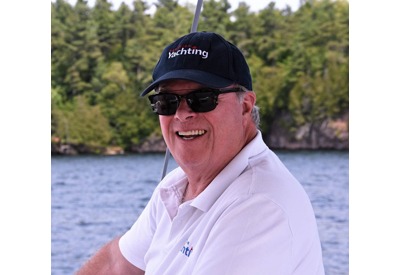Important product assurances for our customers

May 7, 2024
I have long suspected that our customers mentally compare their boats to their cars and that equation brings certain expectations for engineering, testing, product quality and safety. Sitting there in the driver’s / helm seat with the steering wheel in their hands, throttle and gear controls and a dashboard with engine and speed information, boats and cars seem very similar.
We have expectations for our cars and trucks that “the government” has mandated certain safety standards, engine emissions levels and more. Ford builds almost two million vehicles a year. Globally, General Motors builds over six million. For comparison, the NMMA said that U.S. boat sales reached a record high in 2020 of 320,000 boats and a quick Google search suggests that Brunswick corporation alone, (probably the industry leader) has 45 different brands, so how many of any particular boat model is actually built?
By auto industry standards for volume, every boat is a like a custom build and when you consider different options for engine choices, steering systems, wiring and instrumentation, you have to wonder how the industry maintains quality control and especially, user safety.
Last week I joined the ABYC webinar that included an analysis on the effectiveness of ABYC standards in enhancing recreational boating safety. This was presented during the USCG/ABYC Risk Mitigation webinar “Don’t Be a Statistic. Data Saves Lives” on May 1.
During the webinar, Megan Sheahan, a senior associate at Industrial Economics, reported that boats certified to ABYC standards are 43% to 47% less likely to be involved in certain types of accidents. Additionally, adherence to these standards reduces the likelihood of fatalities by 26% to 58% in accidents that do occur, demonstrating that ABYC standards not only decrease accident occurrences but also lessen their severity.
Make sure you read the story (below) in this edition of Boating Industry Canada News Week Digest. We will be producing further editorial follow up for both the trade and our boating consumer readers in Canadian Boating magazine, our Onboard newsletters and our websites.
I think it’s important that our customers know about the ABYC and the NMMA and their contribution to user safety and security. It’s a really reassuring story for buyers.
In the Editor’s Message last week, I wrote about the wildcard nature of our business. As if to underscore that, over the past week, some publicly traded businesses in the marine industry reported their first quarter results and while two major companies reported declines in the minus-20% range, some were up almost that much. Uncertainty still seems to be the dominant theme with frankly, too many factors to even list in this column. But, we concluded with the idea that our customers are a smart and successful group who will continue to go boating.
The NMMA also predicted a basically flat year ahead, and that could mean a solid year for the business.
I also wrote about ethanol in gasoline, prompted by the signage change at my local Shell station when the “CONTAINS NO ETHANOL” stickers disappeared from the premium pumps. I was able to reach a fuel wholesaler in our area who confirmed that they will be providing ethanol-free gasoline to their marina clients.
That’s great news for this summer but take this opportunity to inform your customers with older engines that they soon need to re-power with more up-to-date engines. Ethanol can attack fuel delivery system components that can unexpectedly disable older engines. It’s a significant safety concern.
Andy Adams – Editor



























